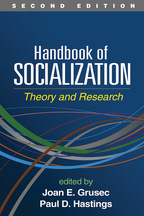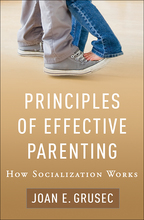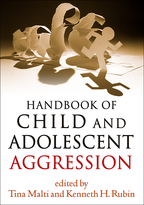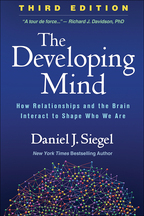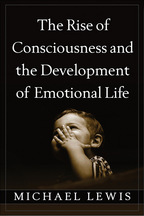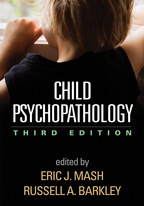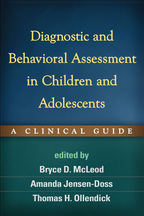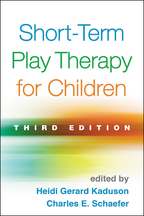Handbook of Socialization
Second Edition
Theory and Research
Edited by Joan E. Grusec and Paul D. Hastings
HardcoverPaperbacke-bookprint + e-book
Hardcover
orderNovember 24, 2014
ISBN 9781462518340
Price: $108.00 718 Pages
Size: 7" x 10"
Paperback
orderNovember 25, 2015
ISBN 9781462525829
Price: $72.00718 Pages
Size: 7" x 10"
“This wonderful handbook resonates well beyond its topic and should prove useful for psychologists, sociologists, and students with a variety of scholarly interests….Essential. Upper-division undergraduates through faculty and professionals.”

—Choice Reviews (on the first edition)
“University libraries should acquire this handbook. Graduate courses on socialization or any of its associated topics should list chapters as required reading and the book as a whole as a resource for theoretical papers and future research.”

—PsycCRITIQUES (on the first edition)
“An excellent handbook....From neuroscience to developmental psychology, this book offers topics of interest to anyone involved in socialization. The literature is well reviewed, critically analyzed, and thoughtfully extended to new directions. It would be difficult, if not impossible, to find a more complete book on socialization....****!”

—Doody's Review Service (on the first edition)
“Grusec and Hastings’s second edition is a masterful volume describing our current understanding of socialization across the life span. Although many of the authors contributed to the first edition, their chapters provide up-to-date reviews of the ever-expanding literature, while numerous other chapters focus on emergent issues and topics not previously included. Invaluable for researchers, this book could also be used as a text in advanced undergraduate- and graduate-level courses on socialization.”

—Michael E. Lamb, PhD, Department of Psychology, University of Cambridge, United Kingdom
“Few concepts are more significant in psychology—and in life—than socialization. When we think of how one generation transacts with the next to embed and advance cognition, emotion, morality, and social behavior, we are thinking in socialization terms. We can best understand this vital multilevel life span dynamic by deconstructing it in terms of ages, actors, outcomes, processes, and spaces where socialization occurs. In the second edition of the Handbook of Socialization, Grusec and Hastings have gathered world-renowned experts to address all the foremost aspects of socialization.”

—Marc H. Bornstein, PhD, Editor, Parenting: Science and Practice
“The second edition of the Handbook is a welcome and highly anticipated addition to our field. It is thoroughly updated and offers a truly contemporary view of socialization, with increased attention to biological, cultural, and contextual aspects. By focusing on the interplay across socialization influences, it retains its well-earned place as the most authoritative volume on this topic. Advanced undergraduates, graduate students, and researchers will all benefit from this revised edition. It deserves a place in the library of all serious students of socialization and social development.”

—Ross D. Parke, PhD, Distinguished Professor Emeritus of Psychology, University of California, Riverside
“The Handbook of Socialization, Second Edition, is an essential reference on all aspects of socialization. The renowned editors have assembled leading scholars to provide a comprehensive overview of state-of-the-art theory and research.”

—Tina Malti, PhD, Department of Psychology, University of Toronto
“We’ve known forever that people are social animals and that each has a personal nature and a socialization history that affects what kind of social animal he or she becomes. But never before has knowledge on socialization been synthesized so well as in this magisterial handbook. Well-conceived, clearly written, up-to-date chapters show how genes, families, schools, workplaces, and cultures interact with a developing human being to create personality, life history, personal problems, and major accomplishments. This is a fascinating volume that will capture the interest of every curious, thoughtful reader.”

—Phillip R. Shaver, PhD, Distinguished Professor Emeritus of Psychology, University of California, Davis
—Choice Reviews (on the first edition)
“University libraries should acquire this handbook. Graduate courses on socialization or any of its associated topics should list chapters as required reading and the book as a whole as a resource for theoretical papers and future research.”
—PsycCRITIQUES (on the first edition)
“An excellent handbook....From neuroscience to developmental psychology, this book offers topics of interest to anyone involved in socialization. The literature is well reviewed, critically analyzed, and thoughtfully extended to new directions. It would be difficult, if not impossible, to find a more complete book on socialization....****!”
—Doody's Review Service (on the first edition)
“Grusec and Hastings’s second edition is a masterful volume describing our current understanding of socialization across the life span. Although many of the authors contributed to the first edition, their chapters provide up-to-date reviews of the ever-expanding literature, while numerous other chapters focus on emergent issues and topics not previously included. Invaluable for researchers, this book could also be used as a text in advanced undergraduate- and graduate-level courses on socialization.”
—Michael E. Lamb, PhD, Department of Psychology, University of Cambridge, United Kingdom
“Few concepts are more significant in psychology—and in life—than socialization. When we think of how one generation transacts with the next to embed and advance cognition, emotion, morality, and social behavior, we are thinking in socialization terms. We can best understand this vital multilevel life span dynamic by deconstructing it in terms of ages, actors, outcomes, processes, and spaces where socialization occurs. In the second edition of the Handbook of Socialization, Grusec and Hastings have gathered world-renowned experts to address all the foremost aspects of socialization.”
—Marc H. Bornstein, PhD, Editor, Parenting: Science and Practice
“The second edition of the Handbook is a welcome and highly anticipated addition to our field. It is thoroughly updated and offers a truly contemporary view of socialization, with increased attention to biological, cultural, and contextual aspects. By focusing on the interplay across socialization influences, it retains its well-earned place as the most authoritative volume on this topic. Advanced undergraduates, graduate students, and researchers will all benefit from this revised edition. It deserves a place in the library of all serious students of socialization and social development.”
—Ross D. Parke, PhD, Distinguished Professor Emeritus of Psychology, University of California, Riverside
“The Handbook of Socialization, Second Edition, is an essential reference on all aspects of socialization. The renowned editors have assembled leading scholars to provide a comprehensive overview of state-of-the-art theory and research.”
—Tina Malti, PhD, Department of Psychology, University of Toronto
“We’ve known forever that people are social animals and that each has a personal nature and a socialization history that affects what kind of social animal he or she becomes. But never before has knowledge on socialization been synthesized so well as in this magisterial handbook. Well-conceived, clearly written, up-to-date chapters show how genes, families, schools, workplaces, and cultures interact with a developing human being to create personality, life history, personal problems, and major accomplishments. This is a fascinating volume that will capture the interest of every curious, thoughtful reader.”
—Phillip R. Shaver, PhD, Distinguished Professor Emeritus of Psychology, University of California, Davis

